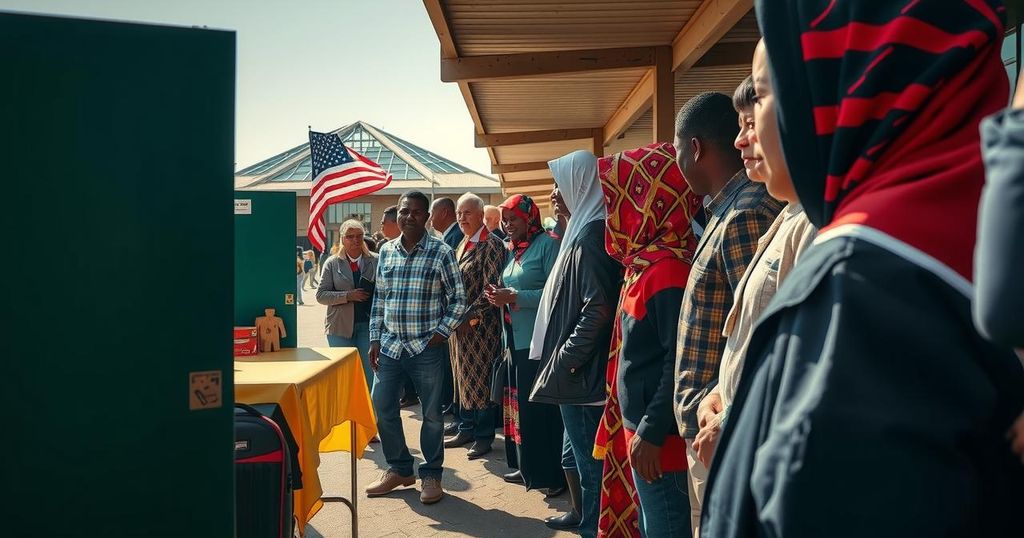World news
AFRICA, ASSOCIATED PRESS, CENTER, DEMOCRACY, ELECTORAL COMMISSION OF NAMIBIA, ELSIE NGHIKEMBUA, FRELIMO, GOVERNANCE, GOVERNMENT, MOZAMBIQUE, NAMIBIA, NANGOMBE SHITALENI, NET, NETUMBO NANDI - NDAITWAH, NORTH AMERICA, OKANDJENGEDI, OPPOSITION, POLITICS, SWAP, SWAPO, UNITED STATES, WINDHOEK
Marisol Gonzalez
0 Comments
Namibia Extends Voting Amid Ballot Shortages, Sparks Opposition Allegations
Namibia’s elections agency has extended voting by several days due to ballot paper shortages, which has drawn protests from the opposition claiming electoral fraud. The logistical challenges faced during the elections highlight public dissatisfaction with the ruling SWAPO party amid economic frustrations.
Namibia’s electoral agency has announced an extension of the voting period for the presidential and parliamentary elections due to significant technical issues, including ballot paper shortages. Originally set to conclude on Wednesday, the polling will now continue until Saturday night. This decision has been met with severe criticism from the opposition Independent Patriots for Change, who have labeled the extension as illegal and indicative of potential electoral fraud.
The extension of voting in this southern African nation arrived amid logistical challenges that left numerous polling stations incapacitated, with reports of many towns lacking essential ballot papers. This led to substantial queues at various polling sites, where frustrated voters expressed their discontent. Netumbo Nandi-Ndaitwah, the vice president and candidate for the ruling SWAPO party, risks losing public favor, especially among the youth who are increasingly disillusioned by economic disparities despite Namibia’s designation as an upper middle-income country.
Moreover, as the elections unfold in Namibia, the country finds itself in stark contrast with neighboring Mozambique, which is experiencing violent protests following allegations of election rigging. Despite Namibia’s historically credible election processes, recent grievances highlight the growing tension as the nation prepares for potentially transformative political changes, ignited by a younger generation seeking better opportunities.
Namibia, which gained independence from South African rule in 1990, has experienced a stable political climate and is recognized for managing credible elections. The SWAPO party, which led the liberation struggle, has been in power for over three decades. However, rising unemployment and economic challenges, particularly among the youth, have created increasing frustrations with the ruling party. This political context is critical in understanding the implications of the recent electoral challenges, particularly as dissatisfaction with the status quo grows.
In conclusion, the extension of voting in Namibia due to technical difficulties has sparked significant contention, particularly from opposition parties alleging potential fraud. As ballot shortages hinder the electoral process, the ruling party faces mounting pressure from a young electorate demanding change. As Namibia navigates these electoral trepidations, the outcomes could be pivotal, affecting the future political landscape of the nation in response to longstanding socio-economic issues.
Original Source: abcnews.go.com




Post Comment